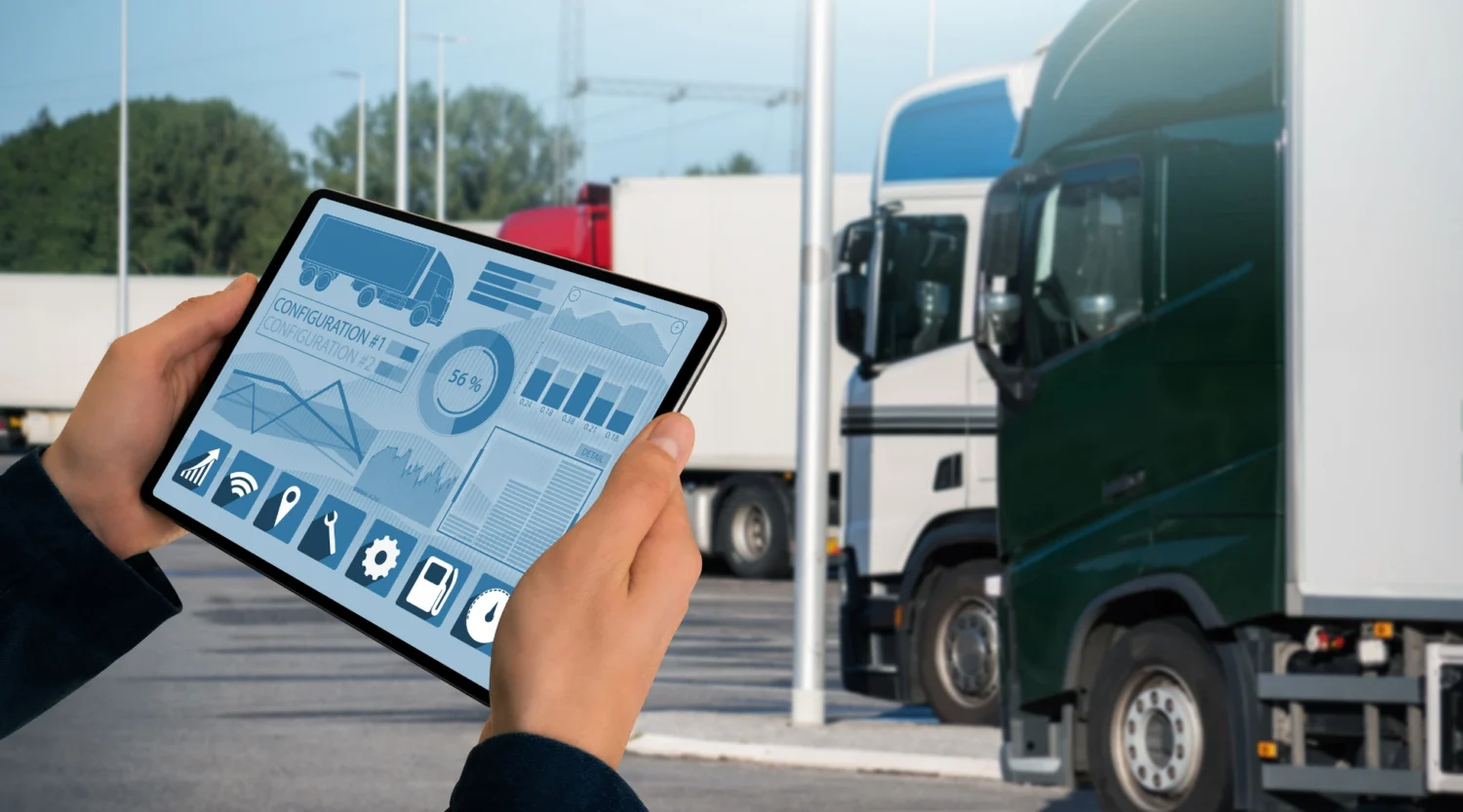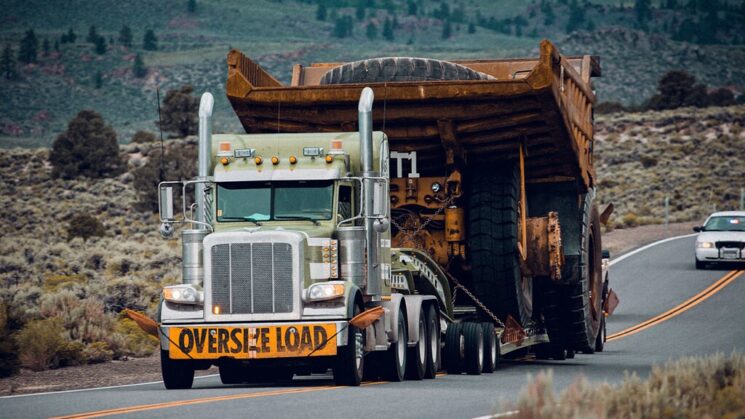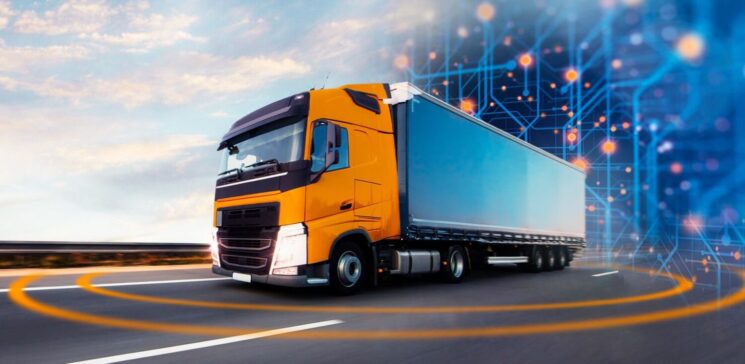This article provides a detailed analysis of companies, and integral players within the global supply chain. We delve into the complex logistics behind coordinating multiple transportation modes, the global impact of these operations, and anticipate future trends in intermodal transport.
Ideal for industry professionals seeking a comprehensive understanding of this intricate sector, this article offers valuable insights into the world of intermodal trucking.
In This Post
Understanding Intermodal Trucking
Intermodal trucking is a pivotal component of global logistics. It involves the transportation of freight in containers using multiple modes of transport—trucks, trains, and ships—without any handling of the freight itself when changing modes.
This method presents intermodal challenges such as coordinating schedules across various transport modes, managing freight damage risks, and complying with different regulatory standards.
Technological advancements play a crucial role in mitigating these issues. Advanced tracking systems, for example, improve schedule coordination and real-time visibility. Automation technologies reduce human error, thus minimizing freight damage. Moreover, software solutions ease regulatory compliance by consolidating international regulations and standards.
Understanding these complexities and technological solutions is key to mastering intermodal trucking.
The Logistics Behind the Scenes

So, how do companies manage the intricate logistics behind these complex operations? The answer lies in supply chain efficiency and logistics technology advancements.
Companies utilize advanced software systems to monitor and control the movement of goods, ensuring that each stage of the process, from loading to unloading, is tracked in real-time. This allows for immediate adjustments to be made if obstacles occur, enhancing supply chain efficiency.
Logistics technology advancements play a crucial role in this process. From GPS tracking to automated scheduling systems, these technological innovations enable companies to manage complex operations with ease.
Coordinating Multiple Transportation Modes
Navigating through the complexities of coordinating multiple transportation modes, trucking companies increasingly rely on intermodal logistics strategies to streamline operations and enhance delivery times.
Key to these strategies is the use of freight matching technology, which allows for the real-time tracking and coordination of shipments across various transportation platforms. This technology not only improves efficiency but also reduces excess capacity, leading to sustainable transportation solutions.
Moreover, it provides firms with essential data for optimizing routes, anticipating potential disruptions, and making informed decisions on mode-switching.
Despite the demanding nature of integrating different transportation systems, the role of corporations remains pivotal in managing these complexities, thus ensuring that goods are delivered promptly and cost-effectively.
Global Impact

The global reach of these logistics strategies has had a profound impact on the efficiency and sustainability of the international supply chain.
These enterprises have adopted sustainable practices, reducing carbon emissions by seamlessly integrating different modes of transportation. These practices have not only contributed to environmental conservation but have also optimized fuel usage and reduced overall operational costs.
In terms of economic contributions, it drives international commerce by facilitating efficient, cost-effective transport of goods across borders. This has stimulated economic growth, created jobs, and fostered global trade relationships.
Hence, the global impact extends beyond improved supply chain management, to significant contributions to sustainability and economic prosperity.
Future Trends in Intermodal Transport
Building upon the global impact, it’s essential to explore the anticipated future trends in intermodal transport, which promise to further revolutionize the industry and its contributions to sustainability and economic prosperity.
One key area of focus is the integration of innovative technology, like autonomous vehicles and advanced logistics systems, to enhance efficiency and reduce carbon footprints.
Moreover, sustainable solutions, such as the increased use of renewable energy sources and the implementation of eco-friendly materials in equipment, are set to become industry norms.
Driven by regulatory measures and societal demand, these trends will redefine the intermodal transport landscape.
Challenges and Solutions

This industry faces unique challenges, but it also finds innovative solutions to overcome these obstacles. These challenges range from managing complex logistics and ensuring timely deliveries to maintaining cargo safety and meeting environmental standards. However, with every challenge, these businesses adapt and innovate to maintain efficiency and reliability in their operations.
Addressing Complex Logistics and Timely Deliveries
It involves coordinating with different transportation modes, each with its own schedules and requirements. This complexity can lead to delays and logistical challenges. To address this, firms invest in sophisticated logistics management systems. These systems enable better coordination and real-time tracking of shipments across different transportation modes, ensuring timely deliveries.
Ensuring Cargo Safety
Cargo safety is a paramount concern in intermodal transportation. The risk of damage increases with each transfer of cargo between modes. To mitigate this, corporations employ rigorous packing standards and use specialized containers designed to protect the cargo during transit. Additionally, regular training for handling staff and drivers ensures they are equipped to manage and transfer cargo safely.
Meeting Environmental Standards
Environmental sustainability is a growing concern in the logistics industry. B its nature, it is more environmentally friendly than other forms of transportation since it optimizes the use of different modes. However, companies are taking further steps to reduce their carbon footprint. This includes investing in fuel-efficient vehicles, optimizing routes for reduced fuel consumption, and exploring alternative fuels and renewable energy sources.
Frequently Asked Questions (FAQs)
How Can One Start Their Own Company?
Starting an intermodal trucking company requires comprehensive market analysis to identify opportunities, and strategic company branding to differentiate your business. It also necessitates obtaining necessary licenses, and permits, and understanding industry regulations.
What Are the Safety Measures Adopted by Companies to Protect Their Drivers and Cargo?
Intermodal trucking companies prioritize safety by implementing rigorous driver training programs and regular equipment upgrades. These measures ensure the secure transportation of cargo and the well-being of their drivers during transit operations.
What Types of Insurance Are Required for Companies?
Intermodal trucking companies require several types of insurance, including liability, cargo, and workers’ compensation. These insurance premiums vary based on risk levels and claim procedures are outlined in the respective policy documents.
How Has the Pandemic Impacted the Intermodal Trucking Industry?
The pandemic has significantly impacted this industry, specifically influencing freight rates and necessitating adaptations for remote operations. Disruptions in supply chains have led to increased freight rates, while operational adjustments have been paramount for continuity.
What Are the Necessary Qualifications and Skills Required to Work in an Intermodal Trucking Company?

Working for a company like this requires a Commercial Driver’s License (CDL), knowledge of trucking technology advancements, and ability to navigate intermodal transport challenges. Strong logistical skills and physical stamina are also essential.